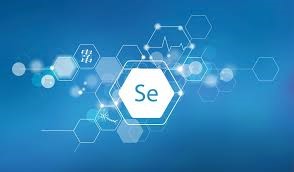
Selenium in Health
Selenium (Se) is a vital trace element essential for the health of both humans and animals. It plays a role in numerous biochemical processes, and sufficient intake is crucial for the proper functioning of living organisms.
Selenium in Health
Selenium (Se) is a vital trace element essential for the health of both humans and animals. It plays a role in numerous biochemical processes, and sufficient intake is crucial for the proper functioning of living organisms.
Selenium deficiency in animals is a widespread concern, particularly in regions where selenium-deficient soils affect the grains and forage consumed by livestock. This deficiency can result in several health problems, including:
- White Muscle Disease (WMD): A degenerative condition causing the striated muscles to take on a whitish appearance.
- Infertility: In ewes, grazing on selenium-deficient pastures can lead to increased infertility.
- Additional Health Issues: Selenium deficiency is also associated with complications such as retained placenta, metritis, mastitis, and abortions.
- Vitamin E/Selenium Deficiency (VESD) Syndrome: In pigs, selenium deficiency can result in VESD syndrome, causing significant health concerns.
- Nutritional myodegeneration (NMD): An acute degenerative condition affecting the cardiac and skeletal muscles, resulting from a dietary deficiency of selenium or vitamin E.
Nowadays, Selenium supplementation is a highly relevant topic for horse owners. As a critical component of equine diets, selenium plays an essential role in metabolism. In combination with Vitamin E, it functions as a potent antioxidant, safeguarding cells from damage.

